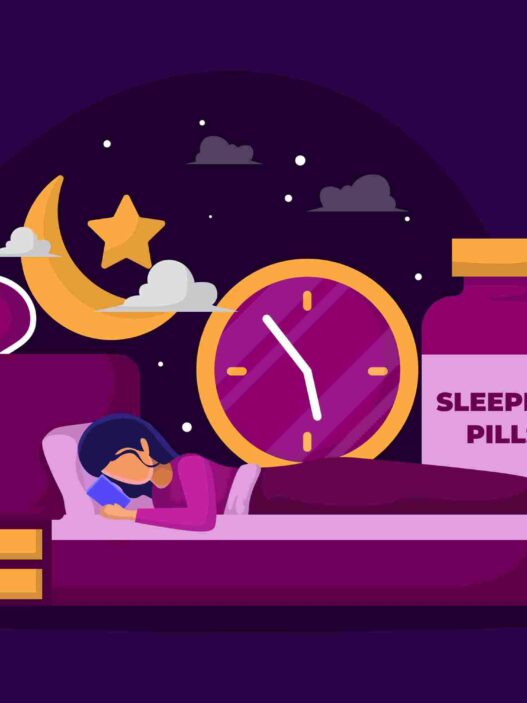Welcome to our blog post that explores the incredible journey from diagnosis to recovery in mental healthcare, and how Psychiatric Mental Health Nurse Practitioners (PMHNPs) are revolutionizing this field. In a world where mental health is finally being prioritized, these unsung heroes are stepping into the spotlight with their invaluable expertise and compassionate care. Join us as we delve deep into their role, explore the transformation they bring, and discover how they are shaping a brighter future for those battling mental health challenges.
Introduction to Psychiatric Mental Health Nurse Practitioners
Psychiatric Mental Health Nurse Practitioners (PMHNPs) are specialized healthcare providers who play a crucial role in the treatment and management of mental health conditions. Their unique set of skills and knowledge allows them to provide comprehensive care that addresses the complex needs of individuals with psychiatric disorders. To become a PMHNP, healthcare professionals typically pursue an online MSN PMHNP degree, which equips them with the necessary qualifications and expertise. PMHNPs have a Master’s or Doctoral degree in nursing, followed by advanced training in psychiatry and mental health. They are licensed registered nurses who have completed additional education and clinical experience specific to mental health care. This specialized training enables them to provide holistic care that encompasses both physical and psychological aspects of mental health.
Role of PMHNPs
The role of PMHNPs is multifaceted, as they work closely with other members of the healthcare team to deliver personalized care for their patients. They collaborate with psychiatrists, psychologists, social workers, occupational therapists, and other healthcare professionals to design comprehensive treatment plans addressing not only symptoms but also underlying causes.
One of the primary roles of PMHNPs is conducting thorough assessments and diagnosing mental health disorders. They use evidence-based tools such as diagnostic questionnaires, psychological tests, and patient interviews to make an accurate diagnosis and develop a customized treatment plan tailored to each patient’s needs.
The Growing Need for Mental Health Professionals
The field of mental health has always been a crucial aspect of overall healthcare, but in recent years, there has been a growing need for mental health professionals. With the increasing awareness and recognition of mental health issues, there has been a significant rise in people seeking help for their mental well-being. This trend can be attributed to various factors, such as changing societal attitudes towards mental health and increased access to information about mental illness.
One major reason for the growing need for mental health professionals is the rising prevalence of mental disorders. According to the World Health Organization (WHO), an estimated 1 in 4 people globally will experience a mental disorder at some point in their lives. This means that millions of individuals worldwide are struggling with conditions such as anxiety, depression, bipolar disorder, and schizophrenia.
Furthermore, the COVID-19 pandemic has also contributed to the demand for mental health services. The past year has brought unprecedented levels of stress and uncertainty globally, leading to a surge in cases of anxiety and depression. Moreover, lockdowns and social isolation have exacerbated existing mental health concerns while also causing new ones.
Another factor driving the need for more mental health professionals is the shortage of providers in this field. In many countries around the world, there is a significant disparity between the number of individuals who require treatment for their psychological distress and the number of trained professionals available to provide it. This shortage is especially evident in rural areas and low-income communities where access to quality care may be limited.
How PMHNPs Differ from Other Mental Health Providers
PMHNPs (Psychiatric Mental Health Nurse Practitioners) play a vital and unique role in the field of mental healthcare. While there are other mental health providers such as psychiatrists, psychologists, and licensed clinical social workers, PMHNPs bring their own set of skills and expertise to the table.
One of the key differences between PMHNPs and other mental health providers is their educational background. While psychiatrists have a medical degree and psychologists have a doctoral degree in psychology, PMHNPs are advanced practice registered nurses (APRNs) who hold a master’s or doctorate degree in psychiatric-mental health nursing.
This extensive education and training allow PMHNPs to provide holistic care for patients with mental health disorders. They not only have a deep understanding of psychiatric conditions, but they also possess strong knowledge about physical health issues that may coexist with mental illnesses. This unique combination enables them to address the physical, emotional, and psychological needs of patients comprehensively.
Aside from their education, PMHNP’s scope of practice also sets them apart from other mental health providers. Unlike psychologists who mainly focus on therapy or psychiatrists who primarily prescribe medication, PMHNPs are trained to perform both roles. They can assess patients’ symptoms, make diagnoses, develop treatment plans, provide psychotherapy sessions, and prescribe medications when necessary.
Scope of Practice for PMHNPs
As advanced practice registered nurses, PMHNPs are highly trained and specialized in the field of psychiatric and mental health care. They work collaboratively with physicians, therapists, social workers, and other healthcare providers to deliver comprehensive treatment to patients with mental health conditions.
The scope of practice for PMHNPs encompasses a wide range of responsibilities, including assessment, diagnosis, treatment planning, medication management, counseling/therapy, education, research support, and patient advocacy. Let’s delve deeper into the key components of their scope of practice:
Assessment
One of the fundamental roles of PMHNPs is conducting thorough assessments of patients’ physical and mental health status. This involves gathering information about past medical history, current symptoms, family dynamics, lifestyle factors, as well as any underlying psychological or environmental stressors that may be contributing to the patient’s condition.
Diagnosis
Based on their assessment findings and diagnostic criteria outlined in the Diagnostic Statistical Manual (DSM-5), PMHNPs can diagnose various psychiatric disorders such as depression, anxiety disorders (such as PTSD or OCD), bipolar disorder schizophrenia spectrum disorders.
Treatment Planning
After establishing a diagnosis and understanding each patient’s unique needs and goals for treatment, PMHNPs develop an individualized treatment plan that incorporates both pharmacological treatments (e.g., prescribing medications) and non -non-pharmacological interventions (e.g., therapy, lifestyle modifications).
Unique Challenges Faced by PMHNPs and How They Overcome Them
In conclusion, PMHNPs play a vital role in advancing mental healthcare, despite facing challenges. The persistent stigma associated with mental illness remains a significant hurdle, requiring PMHNPs to continually educate and advocate for mental health awareness and policy changes. Additionally, limited access to mental healthcare services in underserved areas poses a challenge, prompting PMHNPs to utilize telehealth solutions and collaborate with other healthcare professionals to enhance accessibility and provide effective care to those in need.
Disclosure – This is an external post and the views expressed are of the sponsor/author/third party and not of Healthieyoo’s editorial team. We disclaim any and all liability to any party, company, or product for any direct, indirect, implied, punitive, special, incidental, or consequential damages arising either directly or indirectly due to the use of content published in this article. The publishers of this website take no responsibility for any health issues, personal injury, death, disability, or any other harm due to the content on our website or any advice or opinion expressed on our website. Please consult your healthcare professional before making any decision related to your health. Please also read our medical disclaimer”.
This is a sponsored post and the views expressed are of the sponsor/author/third party and not of Healthieyoo’s editorial team. Please read our editorial policy, affiliate disclosure, and medical disclaimer.











